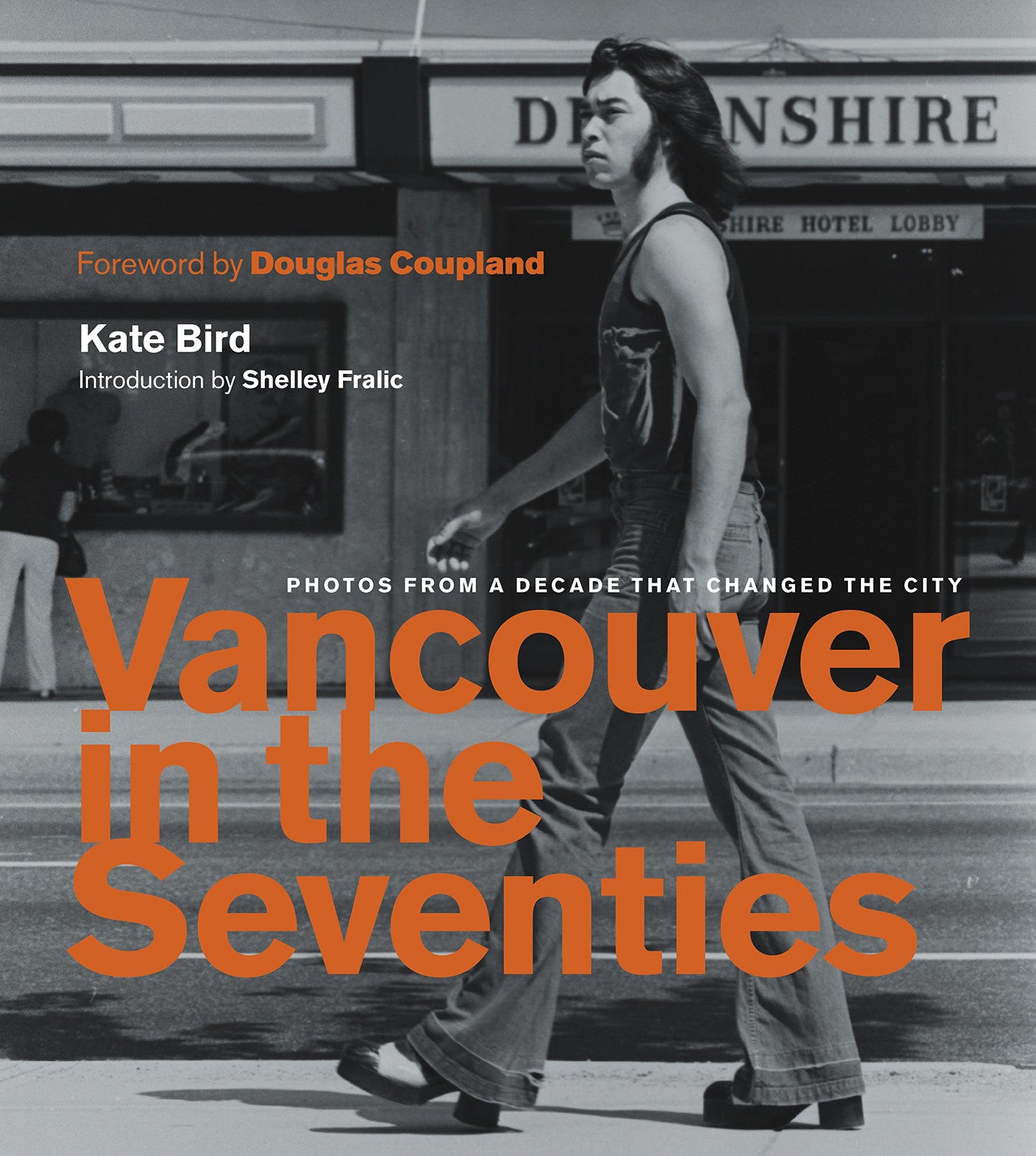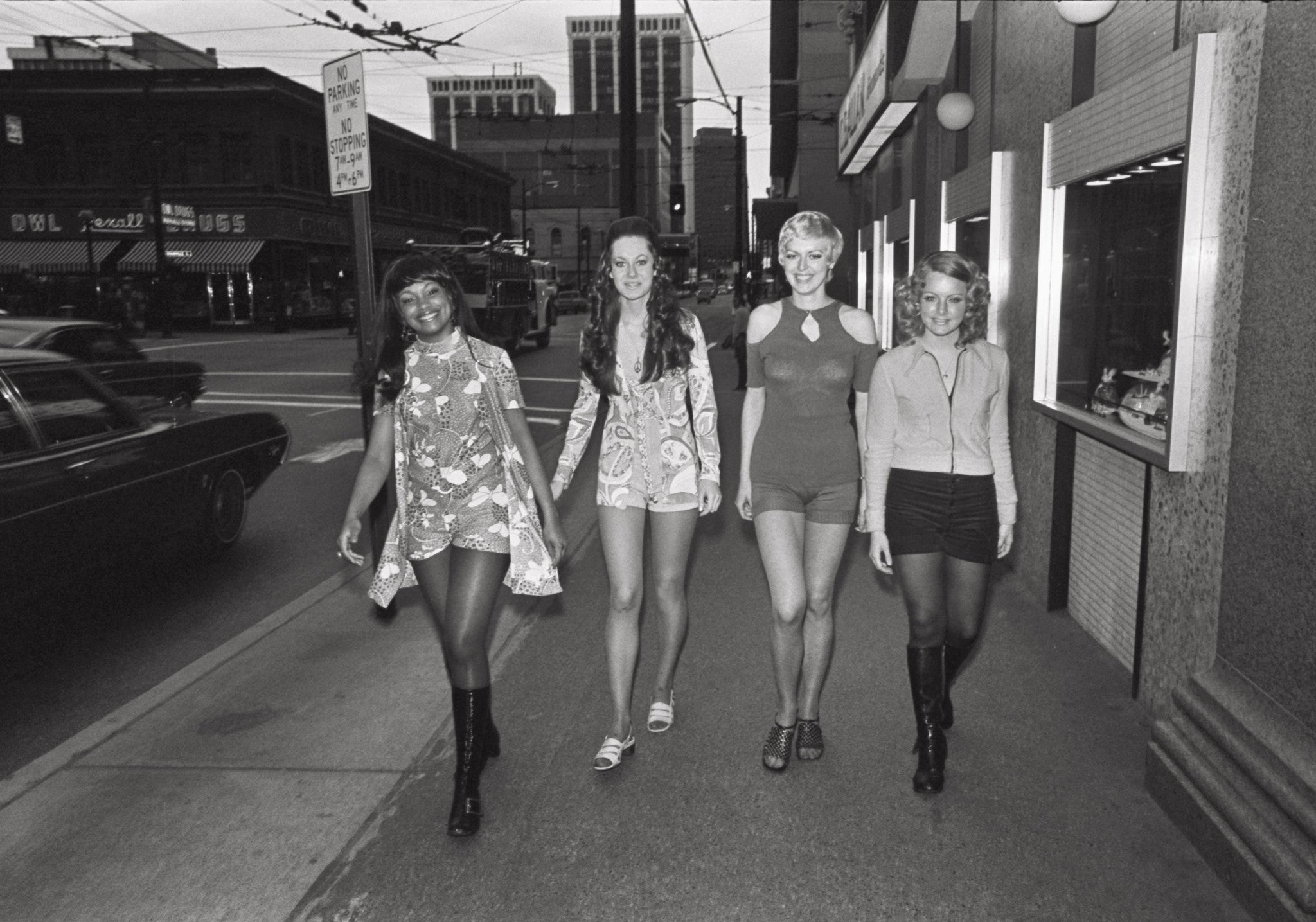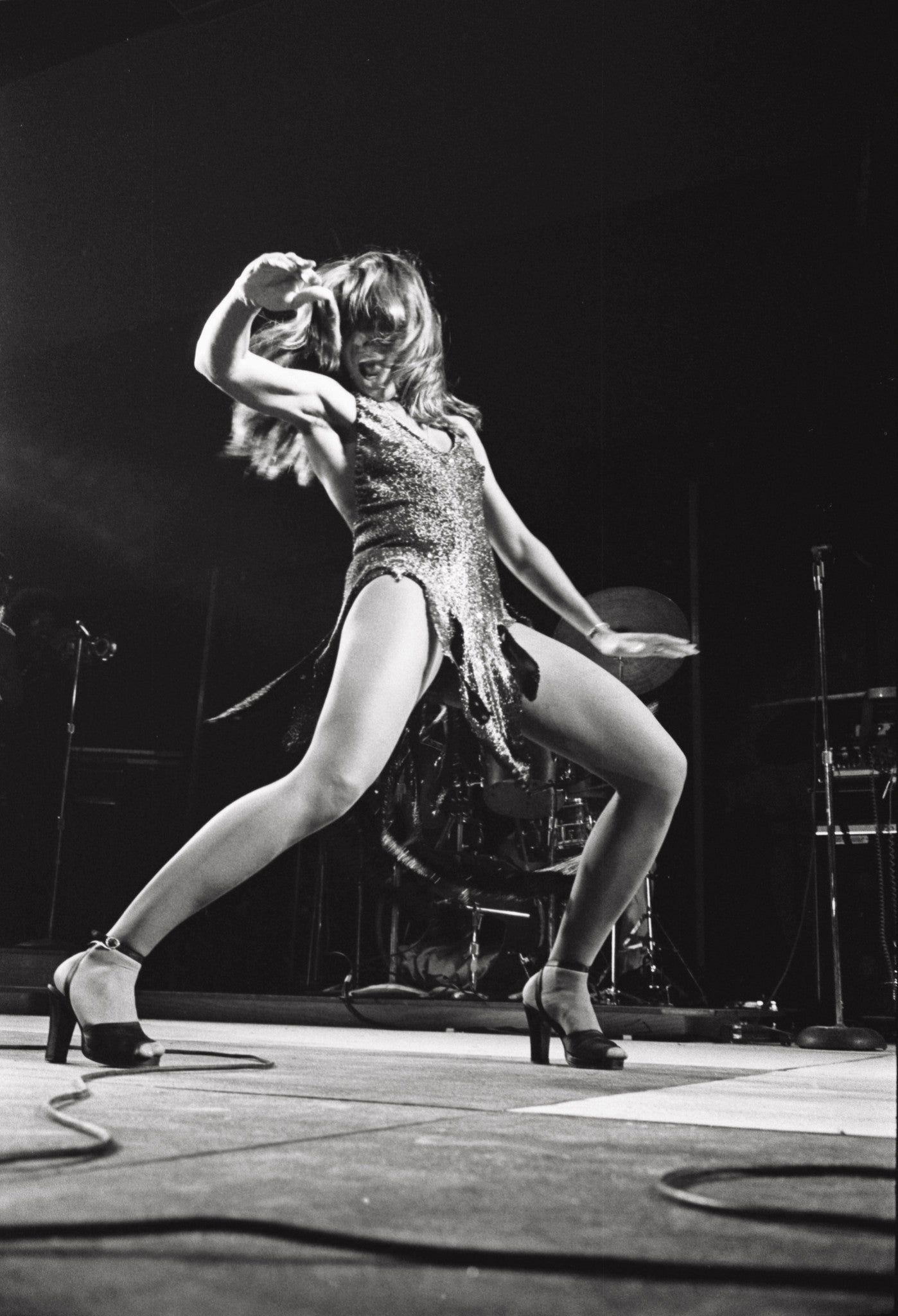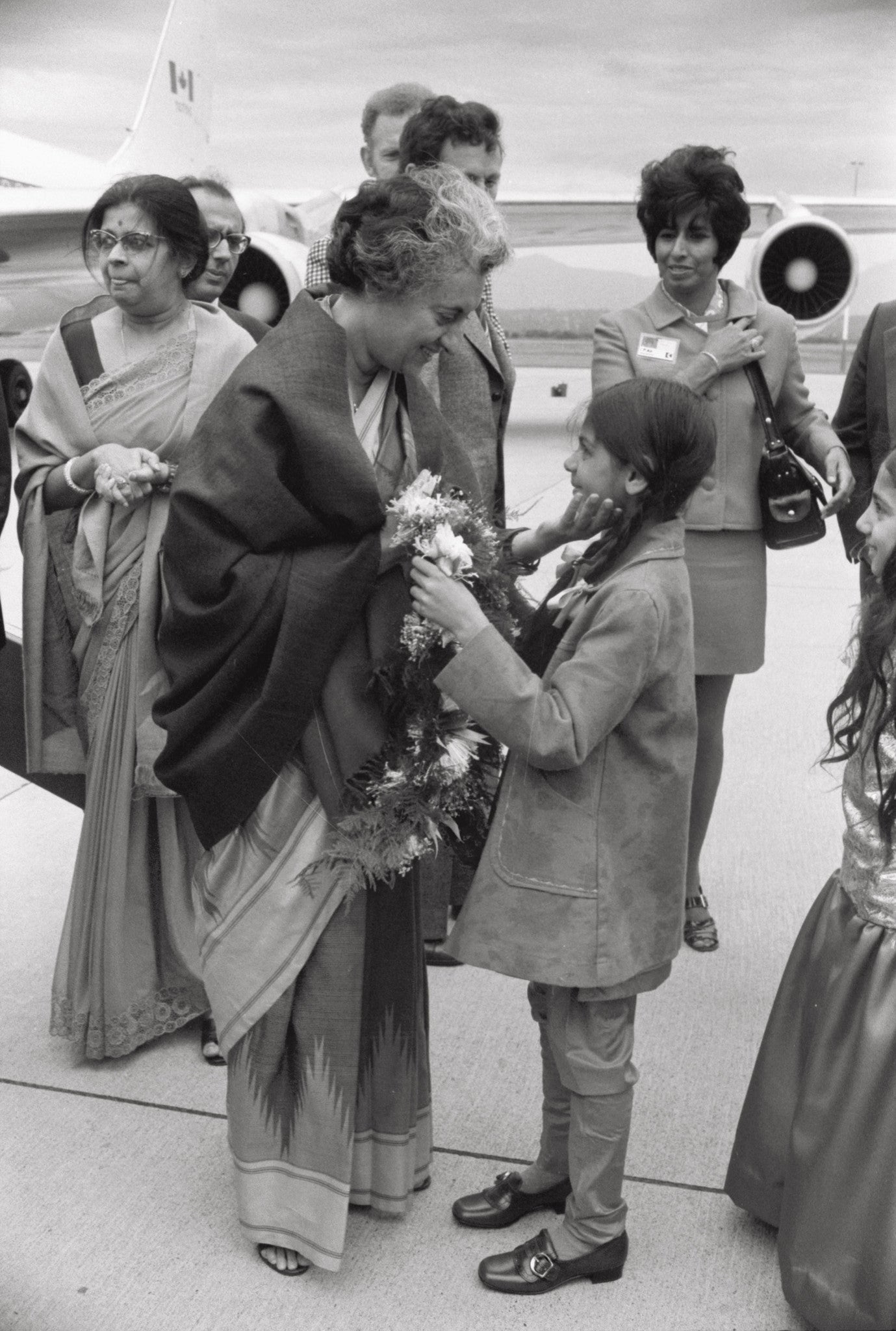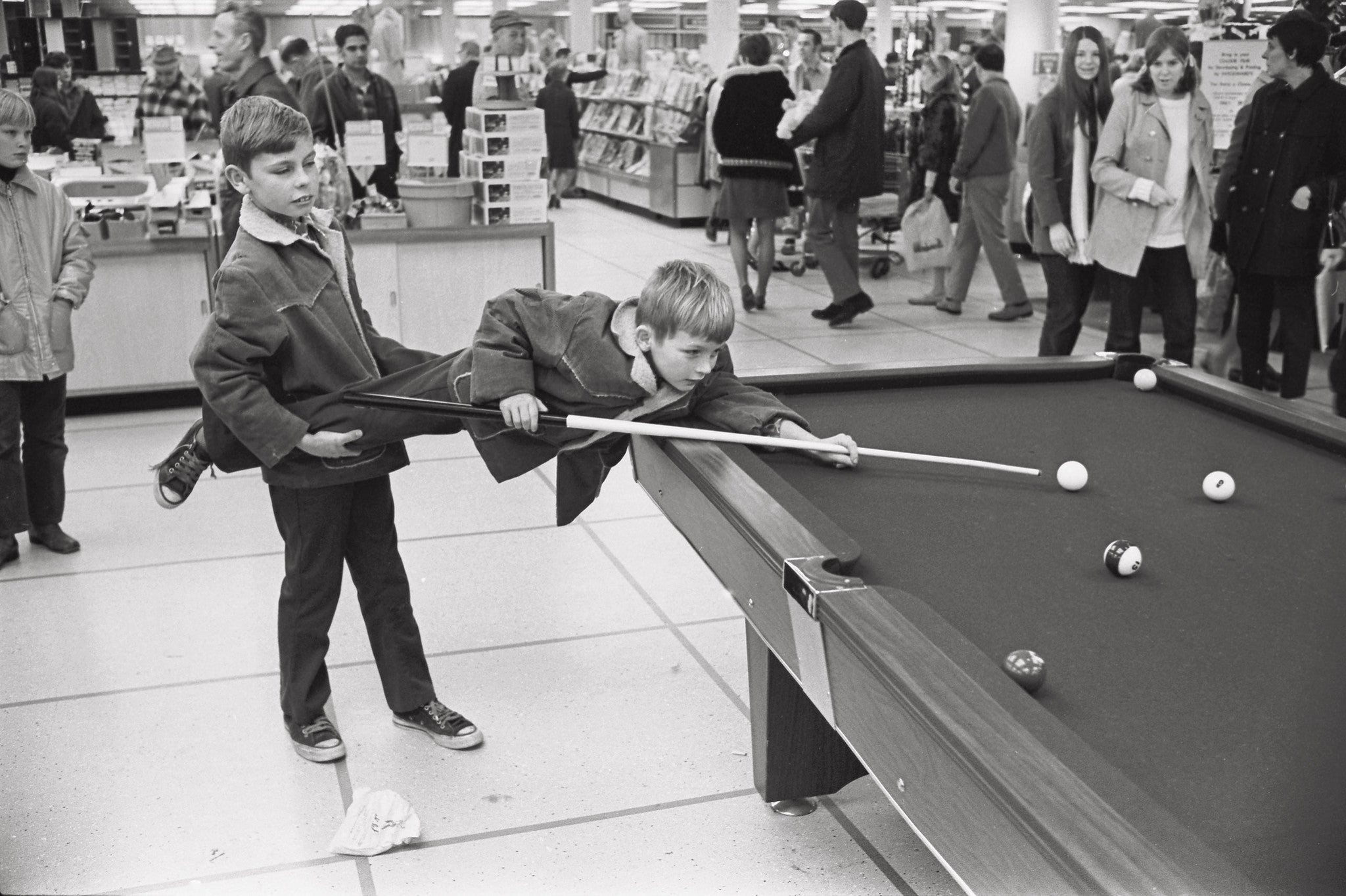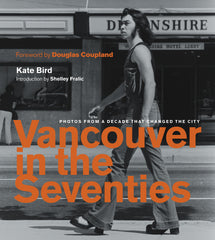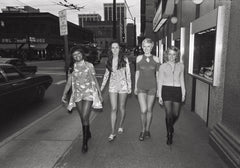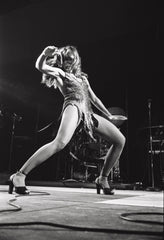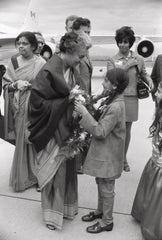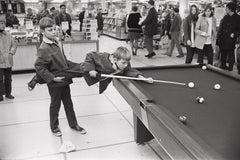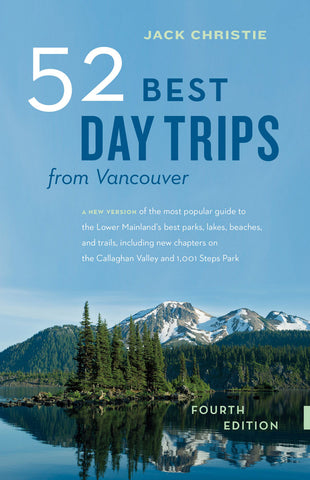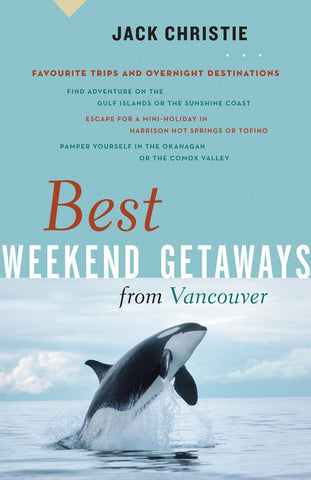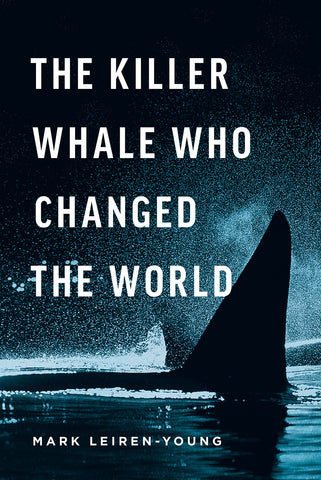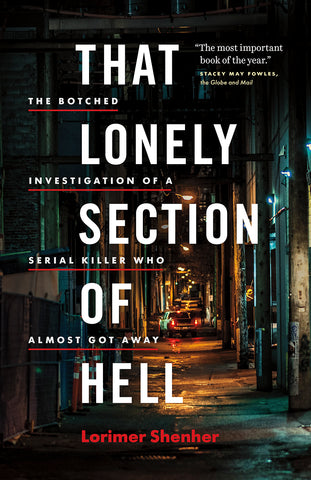Vancouver in the Seventies
Photos from a Decade That Changed the City
- ISBN: 9781771642408
- Tags: Art & Photography, Douglas Coupland, History, Kate Bird, Shelley Fralic,
- Dimensions: 9 x 10
- Published On: 9/30/2016
- 168 Pages
Fresh out of the freewheeling sixties, the seventies was a decade of immense change for Vancouver—a time of protest, political upheaval, economic boom, and cultural evolution. Through it all, the Vancouver Sun's award-winning photographers chronicled the city’s metamorphosis. Shooting more than 4,500 photo assignments each year, they covered news, politics, business and industry, sports, entertainment, food, and fashion, without missing a beat. These images capture pivotal moments in this dynamic city’s history, including the Gastown Riot, the founding of Greenpeace, the wide-eyed innocence of five-year-old Justin Trudeau, and the amazing film career of Chief Dan George.
Vancouver in the Seventies presents 149 exclusive photos from the Vancouver Sun’s extensive collection along with fascinating essays by long-time Sun news research librarian Kate Bird and former Sun journalist Shelley Fralic, coupled with a foreword from renowned Vancouver author Douglas Coupland. Together, these words and images form an unforgettable celebration of the decade in which Vancouver came into its own.
Kate Bird is the author of the bestselling Vancouver in the Seventies: Photos From A Decade That Changed the City and City On Edge: A Rebellious Century of Protests, Riots, and Strikes. She has been the researcher for numerous books, including Making Headlines: 100 Years of The Vancouver Sun, which won the Bill Duthie Booksellers' Choice Award at the 2013 BC Book Prizes. She lives in Vancouver, B.C.
Shelley Fralic joined the Vancouver Sun as a reporter in 1979 and worked in a number of editorial positions at the newspaper over the years, including special projects editor and executive editor, eventually moving on to become a full-time columnist from 2003 to 2016. She is the author of Making Headlines: 100 Years of The Vancouver Sun. She lives in New Westminster, B.C.
"Fascinating images and a must for anyone interested in the history of Vancouver."
—Stan Douglas
"The metamorphosis of Vancouver during [the 1970s] is told in glorious photographic detail in a new book by former Vancouver Sun librarian Kate Bird.”
—The Vancouver Sun
"Kate Bird reminds us of all that once was, offering up nearly 150 period photos by veteran Vancouver Sun photographers Glenn Baglo, Ralph Bower, Deni Eagland, George Diack, and many others."
—Doug Sarti, the Georgia Straight
"[A] vivid look at a decidedly different Vancouver—a city of smog, grime, protest and unprecedented generational strife."
—Jesse Donaldson, the Tyee
"This striking pictorial history offers insightful views of Vancouver, B.C., and the issues with which its citizens were wrestling year by year during the 1970s, a decade of social upheaval."
—Publishers Weekly
"[A] rare and intimate look into a time passed, characterized by civil unrest, wild style, and unbridled love."
—the Runner
"[T]his book should be welcomed. Many great photographs are to be found in newspaper files, and the Sun collection is the strongest one in the province."
—Dave Obee, the Times Colonist
From the Introduction
In 1970, still years shy of its hundredth birthday, Vancouver was emerging from a post-war boom and rushing headlong into a seismic shift that would see a new political, cultural, and social consciousness competing alongside distractions like streaking, disco dancing, the Pet Rock, and Archie Bunker.
The seventies was the decade in which Vancouver left the unfettered sixties behind, along with the city’s long-held imprimatur as a hardscrabble working-class harbour town, embracing instead a growing maturity and an extraordinary metamorphosis from resource-dependent backwater to modern metropolis.
It was a decade, filtered through the clarity of hindsight, of promise and purpose for Vancouver, a time for pushing personal freedoms and questioning authority.
It was also a time of transition, when yippies were becoming yuppies, when the industrial dankness of False Creek was giving way to tony townhouses, when political upstarts and cultural initiatives were quickening the city’s pulse.
Around the globe, political and economic upheaval was tarnishing the sheen of decades of unbridled industrialization and prosperity that had so endowed North America after the Second World War. Inflation and unemployment, twin tidal waves of woe, along with OPEC ’s economy-crushing oil embargo, brought an unexpectedly harsh economic reality to North America.
Change crept into Vancouver from south of the border, too. America’s influence on pop culture and politics escalated, not just with the first Apple computer and the VCR, but with a fresh legacy of civil unrest, with Richard Nixon and Watergate, Kent State, the Pentagon Papers, and Three Mile Island all casting a dark shadow.
The political flashpoint that was the Vietnam War brought a flood of draft dodgers and deserters north of the forty-ninth parallel, along with a bold intellectual perspective that energized campuses and arts organizations around the city.
Across Canada, divisive issues like Quebec separatism, abortion rights, the October Crisis, and the rise of regionalism were dampening the Canadian spirit.
Vancouver, not immune to the change around it, was suddenly no longer just the country’s cornerstone of bountiful oceans and glorious mountains, but was the new national ground zero for radical unrest and direct action, as protesters took to the streets to fight for workers’ rights, aboriginal land claims, the homeless, affordable housing, the unemployed, gay rights, legalized marijuana, and gender equality.
Growing dissatisfaction with authority and discrimination provoked a clash between hundreds of youth and police at the Battle of Jericho in 1970 and the Gastown Riot in 1971. The Clark Park gang tangled with police at a Rolling Stones concert in 1972 and, over the decade, there were three riots and a deadly hostage-taking at the B.C. Penitentiary.
But perhaps nothing defined Vancouver in the seventies as much as the groundswell of the environmental movement, marked by the founding of Greenpeace, the fledgling organization that changed the ecological conscience of the world through a proselytizing rag-tag army of Cowichan-sweaterclad eco-warriors like Bob Hunter, Paul Watson, and Patrick Moore.
From Big Oil protests at Peace Arch Park to anti-logging blockades in B.C. forests, from high seas confrontations with Japanese whalers to sailing to Amchitka in denunciation of nuclear testing, Greenpeace was a grassroots green wave that swept across the globe, and today its millions of members in dozens of countries still lead the charge on fighting climate change.

